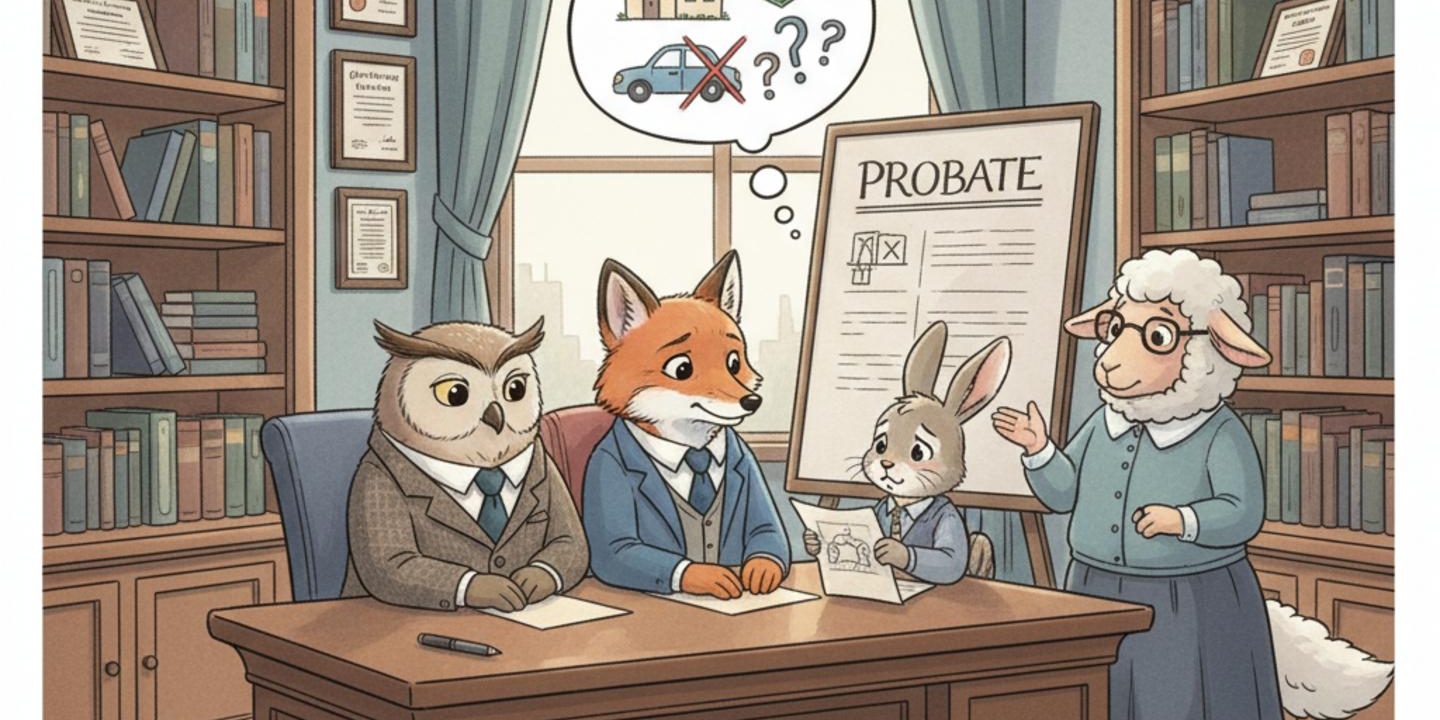Can I be held responsible for a car loan deficiency after my parent’s vehicle was repossessed? – North Carolina
Short Answer
In North Carolina, heirs are not personally responsible for a deceased person’s debts, including a car loan deficiency, unless they co-signed or otherwise agreed to be liable. The lender’s deficiency becomes a claim against the estate. If the estate is insolvent, the personal representative pays claims in a statutory order, and lower‑priority claims may go unpaid. Nonprobate recipients may have to return funds needed to pay claims, but heirs generally do not owe debts out of their own pockets.
Understanding the Problem
In North Carolina, you want to know whether you, as the sole heir, can be made to pay your parent’s car loan deficiency after repossession when the estate may be insolvent and a commissioner’s sale of jointly owned real property is underway. You are deciding whether to open probate and how the car lender’s deficiency would be handled.
Apply the Law
Under North Carolina law, the estate—not the heirs—owes the decedent’s valid debts. A vehicle lender has a secured claim up to the value of the collateral; any shortfall after repossession and sale is an unsecured “deficiency” claim. The Clerk of Superior Court oversees estate administration. After the personal representative publishes Notice to Creditors, most claims must be presented by the bar date set in the notice (at least three months after first publication). Claims are paid in a strict statutory order; if assets are insufficient, unpaid lower‑priority claims are not the heir’s personal responsibility.
Key Requirements
- Estate liability, not heir liability: Heirs are not personally on the hook for the decedent’s debts unless they co-signed or assumed the debt.
- Secured vs. deficiency: A car loan is secured up to the collateral’s value; any remaining balance after sale is an unsecured claim against the estate.
- Notice to Creditors and bar date: The personal representative must publish notice; most claims must be filed by the deadline stated in the notice.
- Priority of payment: The personal representative pays claims in statutory order; general unsecured deficiencies are lower-priority than costs of administration and other preferred claims.
- Nonprobate assets may be tapped: In some insolvent estates, certain survivorship or POD funds may be pulled back to pay claims, but recipients are not liable beyond the funds recovered.
What the Statutes Say
- North Carolina Gen. Stat. § 28A-14-1 (Notice to Creditors) – Requires publication of a general notice to creditors after qualification.
- North Carolina Gen. Stat. § 28A-19-3 (Bar of claims) – Sets deadlines for presenting claims and the effect of missed deadlines.
- North Carolina Gen. Stat. § 28A-19-6 (Order of payment of claims) – Establishes the priority for paying estate debts, including secured and unsecured claims.
- North Carolina Gen. Stat. § 28A-15-10 (Limited assets recoverable to pay claims) – Allows recovery of certain nonprobate assets when needed to pay estate debts.
Analysis
Apply the Rule to the Facts: Here, the car lender’s deficiency (after repossession and sale) is an unsecured claim against your parent’s estate. The personal representative will publish notice and pay claims in order of priority. Because the estate may be insolvent and the real property sale might not cover all debts, lower‑priority unsecured claims (like a vehicle deficiency, credit card, or wireless account) may receive partial payment or none. You are not personally liable unless you co-signed or assumed the debt.
Process & Timing
- Who files: An eligible person (often the heir) seeking to be personal representative. Where: Clerk of Superior Court in the decedent’s county of domicile in North Carolina. What: File the Application for Letters (AOC-E-201 if there’s a will; AOC-E-202 if no will) and, after qualification, publish the Notice to Creditors. When: Publish promptly after qualification; the creditor bar date must be at least three months after first publication.
- Obtain authority for any needed real property sale (if not already authorized) and complete the commissioner’s sale. Expect an upset-bid period after the initial report of sale; timeframes vary by county and bidding activity.
- After the claim period closes, pay allowed claims by priority using estate and sale proceeds; file inventories and accounts; then close the estate. If insolvent, file an accounting showing pro‑rata payment within each class.
Exceptions & Pitfalls
- If you co-signed or guaranteed the car loan, you can be personally liable regardless of probate.
- Paying lower‑priority creditors before higher‑priority claims can result in personal surcharge against the personal representative.
- Failing to publish and mail required notices can extend creditors’ time to claim and complicate closing.
- Recipients of survivorship/POD funds may have to return amounts needed to pay estate debts; plan for potential recovery before distributing.
- Do not distribute to heirs until after the claims window closes and priorities are satisfied; premature distributions can be clawed back.
Conclusion
In North Carolina, you are not personally responsible for your parent’s car loan deficiency unless you co-signed or assumed the debt. The deficiency is an unsecured claim against the estate and is paid only after higher‑priority expenses and claims. If the estate is insolvent, lower‑priority claims may go unpaid. Next step: open the estate with the Clerk of Superior Court, publish Notice to Creditors, and pay claims in statutory order before any distributions.
Talk to a Probate Attorney
If you’re dealing with an insolvent estate and a repossessed vehicle deficiency, our firm has experienced attorneys who can help you understand your options and timelines. Call us today at 919-341-7055.
Disclaimer: This article provides general information about North Carolina law based on the single question stated above. It is not legal advice for your specific situation and does not create an attorney-client relationship. Laws, procedures, and local practice can change and may vary by county. If you have a deadline, act promptly and speak with a licensed North Carolina attorney.


